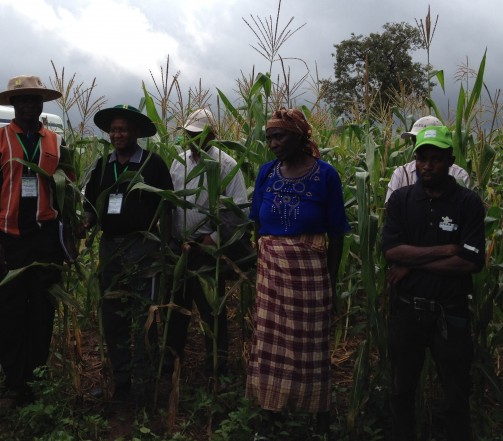Understanding why smallholder farmers adopt sustainable agricultural intensification practices
The Adoption Pathways project is focused on understanding how smallholder farmers make decisions about adopting Sustainable Agricultural Intensification (SAI) practices. The project team have been sharing some of their successes through a recent media visit in Eastern Kenya.
The International Maize and Wheat Improvement Center (CIMMYT) and the Kenya Agricultural Research Institute (KARI) researchers say that the general development of technologies that do not focus on farming practices is one of the gaps in African agriculture.
Project Leader Dr Kassie Menale tells SciDev.Net that the “adoption of SAI practices in combination has the potential to increase agricultural production and improve soil fertility, while reducing environmental degradation”. The technologies to be used in combination include use of improved seed varieties, crop diversification through crop rotation, intercropping and conservation tillage.
In Ethipia the project has found that adopting SAI practices can raise net maize income by 47 per cent to 67 per cent and reduce fertiliser application without compromising farmers’ earnings.
Aslipon Nyaga, a farmer from Embu county in Kenya, says that since the adoption of SAI practices, her farm yields have doubled.
Read the full article by SciDev.NET.

